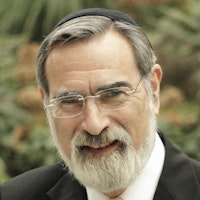We know that eternity preceded us and infinity will come after us, yet we know also that this day, this moment, this place, this circumstance is full of the light of infinite radiance, whose proof is the mere fact that we are here to experience it.
Jonathan Sacks

Light of Infinite Radiance
Topic: Truth, Law, & Principle
God is the personal dimension of existence, the “Thou’ beneath the ‘It’, the ‘ought’ beyond the ‘is’, the Self that speaks to self in moments of total disclosure when, opening ourselves to the universe, we find God reaching out to us. At that moment we make the life-changing discovery that, although we are utterly insignificant, we are also utterly significant, a fragment of God’s presence in the world. We know that eternity preceded us and infinity will come after us, yet we know also that this day, this moment, this place, this circumstance is full of the light of infinite radiance, whose proof is the mere fact that we are here to experience it. At its height, faith is none other than the transfiguring knowledge that, ‘Yea, though I walk through the valley of the shadow of death I will fear no evil, for You are with me.’
Knowing, we are known. Feeling, we are felt. Acting, we are acted upon. Living, we are lived. If we make ourselves transparent to existence, then our lives too radiate that Divine presence which, celebrating life, gives life to those whose lives we touch.”
Jonathan Henry Sacks, Baron Sacks, was born on March 8, 1948, in Lambeth, London. He became a notable British Orthodox rabbi, philosopher, theologian, author, and politician. From 1991 to 2013, he served as the Chief Rabbi of the United Hebrew Congregations of the Commonwealth, playing a pivotal role in guiding and representing Jewish communities across the region.
Beyond his leadership in the Jewish community, Sacks was deeply passionate about character education, morality, and the importance of family. He frequently emphasized the role of ethical teachings in forming well-rounded individuals and believed in the necessity of strong family bonds for a stable society. An accomplished author, his books often explored the intersections of faith, morality, and contemporary challenges, aiming to make religious insights relevant to a wide audience. These works not only resonated within religious circles but also found acclaim in academic and political spheres due to their timely and profound insights.
Sacks passed away on November 7, 2020, in London. His legacy, marked by interfaith dialogue, advocacy for character education, and a steadfast commitment to the Jewish community, continues to inspire many. He is survived by his wife, Elaine Taylor Sacks, whom he married in 1970.
Sacks, Jonathan. "Celebrating Life: Finding Happiness in Unexpected Places." Continuum International Publishing Group, 2000.

Jonathan Sacks
Theme: The Light of Truth

About This Jonathan Sacks Quotation [Commentary]
Rabbi Jonathan Sacks’ quote insightfully captures the essence of our fleeting existence against the eternal backdrop of time. He posits that while we exist in a vast continuum of eternity and infinity, it’s the present moment that holds profound significance. This perspective emphasizes the sacred within the ordinary, highlighting how our transient lives are infused with meaning as we experience the ‘light of infinite radiance.’ Sacks’ view aligns with the spiritual truth that in our ephemeral existence lies our connection to the divine, blending the mundane with the sacred.
In the broader context of Sacks’ work, the divine is portrayed as intimately intertwined with our existence. The concept that ‘God lives where we let Him in’ suggests that the divine presence is an internal experience, awaiting our recognition. This aligns with Hassidic teachings, where divinity is found in our actions and thoughts rather than physical spaces. It underscores the theme of ‘The Light of Truth,’ indicating that truth and divinity are deeply linked to our awareness and openness. Sacks’ teachings encourage us to embrace an accessible, human-centered spirituality, where the divine is encountered in the nuances of daily life.
Sacks concludes by redefining faith as an embrace of uncertainty and vulnerability. He suggests that our quest for meaning amidst the unknown is a fundamental aspect of the human condition. This view of faith as a journey through uncertainty resonates with the concept of finding strength in vulnerability. It’s a call to see our lives as channels of divine light and truth, where every thought and action reflects a deeper, spiritual purpose. Sacks’ words encourage us to find the extraordinary within the ordinary, reminding us that the ‘light of infinite radiance’ is often found in the simplicity of our daily lives.
More from Rabbi Jonathan Sacks [Excerpt from “Where we let Him in”]
Related Quotes
Copyright © 2017 – 2026 LuminaryQuotes.com About Us